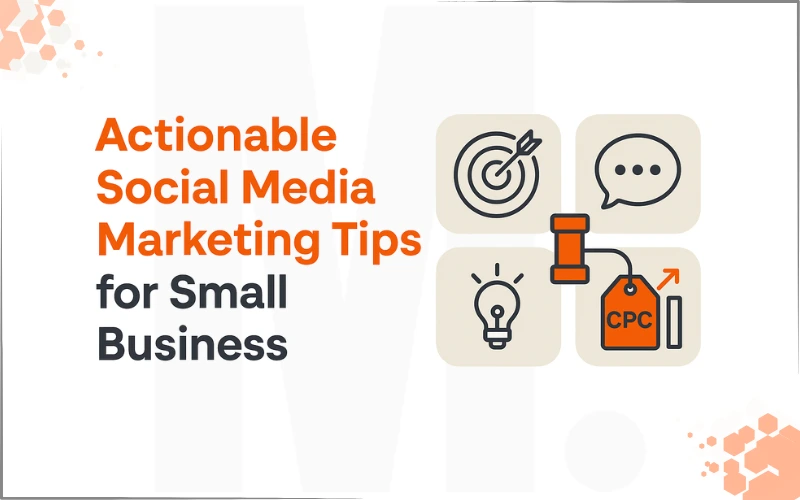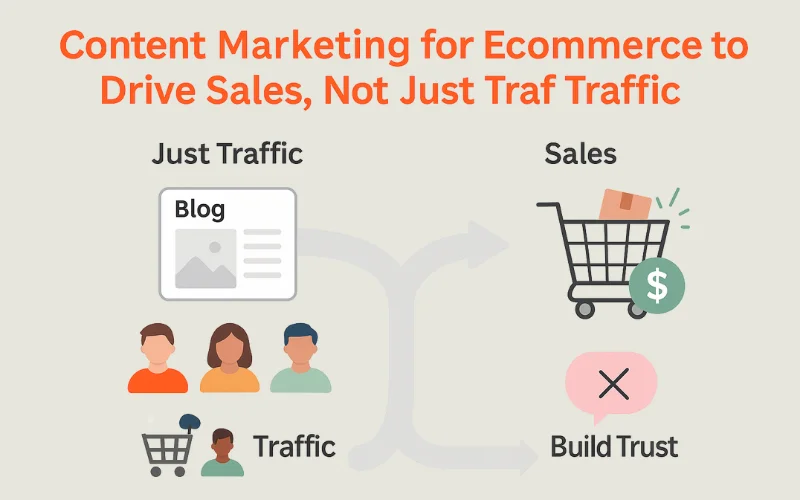Introduction:
So, you’re a small business owner, and you know social media is important, but how do you make social media marketing for small business truly effective without a giant team or budget? Indeed, it can feel like a lot to manage. However, with the right strategies and a focused approach, even the smallest businesses can leverage social media to connect with customers, build brand loyalty, and drive growth. Consequently, this guide provides actionable, practical tips specifically tailored for social media marketing for small businesses. Therefore, let’s explore how you can make a big impact.
Strategizing Your Social Media Marketing for Small Business
Define clear goals for your small business’s social media marketing.
Before you start posting, ask yourself: What do you want to achieve with social media marketing for small business? For example, common goals include increasing brand awareness, driving website traffic, generating leads, boosting sales, or improving customer service. Importantly, make these goals specific and measurable (e.g., “Increase website clicks from Facebook by 20% in 3 months”). This clarity will guide all your efforts.

Identify your target audience and where they spend time online.
Crucially, effective social media marketing for small business means knowing exactly who you’re trying to reach. Who is your ideal customer? What are their demographics, interests, and pain points? Furthermore, which social media platforms do they actively use? Instead of trying to be everywhere, focus your efforts on the 1-3 platforms where your target audience is most concentrated.

Choose the right social media platforms for your small business.
Based on your target audience research, select the platforms that make the most sense for your social media marketing for small business. For instance:
- Facebook: Great for broad reach, community building, and local businesses.
- Instagram: Ideal for visual brands (e.g., retail, food, travel, artists).
- X (formerly Twitter): Good for real-time updates, news, and customer service.
- LinkedIn: Best for B2B businesses, networking, and thought leadership.
- Pinterest: Excellent for visual discovery, e-commerce, and DIY/lifestyle content.
- TikTok: Strong for short-form video, reaching younger audiences, and creative content.
Remember, it’s better to do well on a few platforms than poorly on many.

Optimize your social media profiles completely.
Once you’ve chosen your platforms, ensure your business profiles are fully optimized. This includes, for example, using a clear and recognizable profile picture (often your logo), a compelling cover photo, a concise and keyword-rich bio, accurate contact information, and a link to your website. Indeed, a complete profile looks more professional and helps people find you.

Content and Engagement for Your Small Business Social Media Marketing
Plan a diverse and engaging content mix.
Content is king in social media marketing for small business. Therefore, aim for a mix that provides value to your audience. For example, share:
- Behind-the-scenes glimpses of your business.
- Customer testimonials or user-generated content.
- Helpful tips or educational content related to your industry.
- Engaging questions or polls.
- High-quality photos and videos of your products/services.
- Promotions and special offers (but don’t make every post a sales pitch!).

Create a simple content calendar.
Even for a small business, a content calendar helps maintain consistency in your social media marketing for small business efforts. It doesn’t need to be fancy; a simple spreadsheet will do. So, plan your posts a week or two in advance, noting the platform, content type, caption, and any relevant hashtags. This helps avoid last-minute scrambling.

Focus on creating high-quality visuals (even on a budget).
Since social media is highly visual, invest time in creating appealing photos and videos. Fortunately, you don’t always need expensive equipment; modern smartphones take great photos. Furthermore, utilize good lighting, simple backgrounds, and free or low-cost editing apps (like Canva or CapCut) to enhance your visuals. This can significantly impact your social media marketing for small business.

Actively engage with your audience.
Social media is a two-way street. Therefore, don’t just post and disappear. Respond to comments and messages promptly and personally. Additionally, like and share relevant content from others, ask questions, and acknowledge mentions. Building relationships is a key part of successful social media marketing for small business.

Tools, Analysis, and Growth for Small Business Social Media Marketing
Leverage free and low-cost social media tools.
Thankfully, many tools can help streamline your social media marketing for a small business without breaking the bank.
For example:
- Scheduling tools: Meta Business Suite (free for Facebook/Instagram), Buffer (free/paid), Hootsuite (free/paid).
- Design tools: Canva (free/paid) for graphics.
- Video editing apps: CapCut (free), Inshot (free/paid).
- Analytics: Built-in platform analytics are often sufficient to start.
These tools can save you time and effort.

Consistently monitor your social media analytics.
Most social media platforms provide built-in analytics that show you how your content is performing. Regularly check metrics like reach (how many people saw your content), engagement (likes, comments, shares), and follower growth. This data helps you understand what resonates with your audience and what aspects of your social media marketing for small businesses need adjustment.

Consider low-budget paid advertising (when ready).
Once you have a good understanding of what organic content works, you might consider allocating a small budget to social media ads (e.g., boosting successful posts on Facebook or Instagram). This can help you reach a wider, targeted audience. However, start small, define your audience carefully, and monitor results closely to optimize your social media marketing for small business ad spend.

Stay consistent, be patient, and adapt.
Building a strong social media presence takes time and consistent effort. Therefore, don’t get discouraged if you don’t see massive results overnight. Instead, keep posting valuable content, engaging with your audience, and learning from your analytics. Furthermore, social media platforms and trends evolve, so be prepared to adapt your social media marketing for a small business strategy over time.

Tips:
- Primarily, use relevant hashtags strategically to increase discoverability, especially on platforms like Instagram and X.
- Also, run simple contests or giveaways to boost engagement and attract new followers.
- Furthermore, showcase your personality! Small businesses often have an advantage in being more authentic and relatable.
- Additionally, collaborate with other local small businesses for cross-promotion.
- Importantly, repurpose content across different platforms, but tailor it slightly for each (e.g., a blog post can become several social media updates).
- Consider using user-generated content by encouraging customers to share photos of your products.
Warnings:
- Crucially, don’t buy followers or engagement; it’s inauthentic and rarely leads to real business results.
- Also, avoid spreading yourself too thin by trying to be active on too many platforms at once, especially with limited resources.
- Furthermore, don’t ignore negative feedback; address it professionally and see it as an opportunity to improve.
- Finally, be mindful of copyright when sharing images or music that you didn’t create yourself.
Things You’ll Need:
- Clear business goals, of course.
- Additionally, an understanding of your target customer is required.
- Access to the chosen social media platforms.
- A smartphone or camera for photos/videos.
- Perhaps, basic design/editing tools (many free options exist).
- Lastly, dedicate time each week for planning, creating, and engaging.


